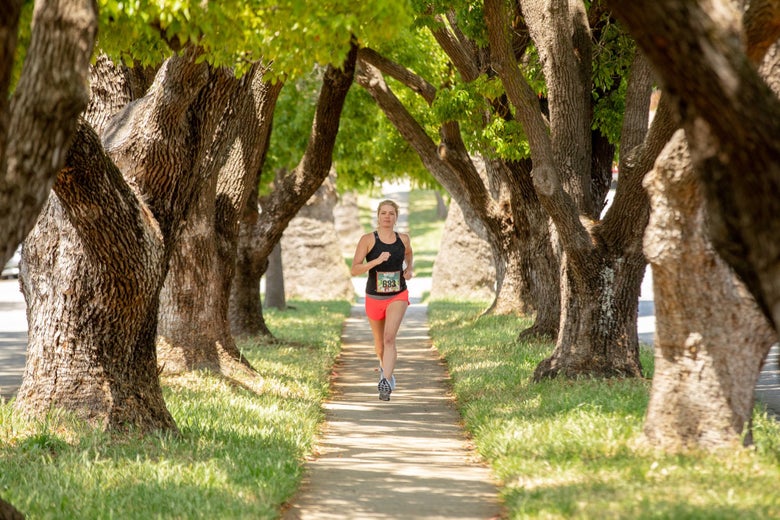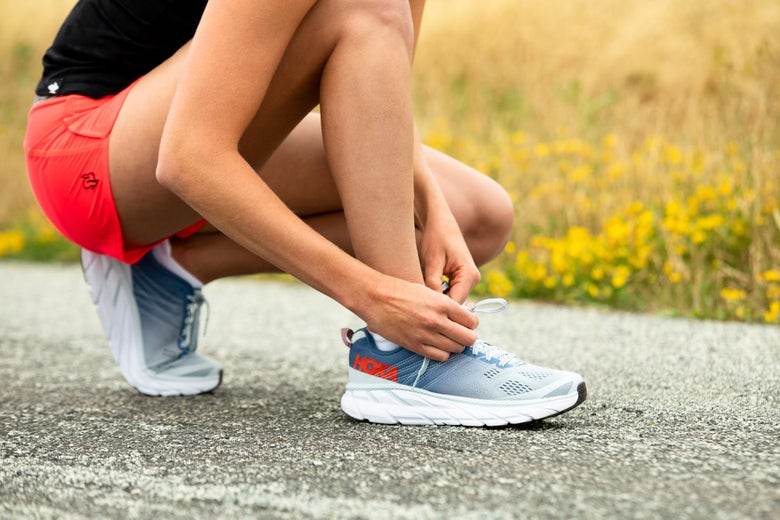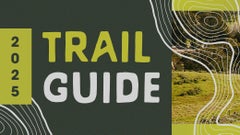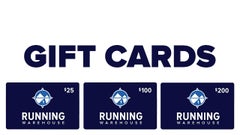13.1 Tips for Your First Half Marathon
Updated: December 6, 2024 by Liz Schteiden

Regardless of whether you are a new runner or someone who has been running most of your life, your first half marathon can seem like a daunting task. You may be nervous about the distance, the crowd, or your training, but following these easy tips can help those 13.1 miles feel a lot more manageable.
1 - Find a Good Training Plan, and Stick to It!
For those who are fit and spontaneous, it may be possible to wing your first half-marathon, but the best way to set yourself up for success is to stick to a training plan. These plans will help you gradually increase distance over time, take proper rest days, and be as ready as possible for the race ahead.
Don't be discouraged if you miss a day, but you should try not to skip your long days. You'll also want to taper your mileage the week before the half-marathon to make sure your legs are feeling fresh and ready for the effort ahead.
2 - Do Your Research
Most half marathon events have pretty detailed websites with a lot of useful information available. Take some time to look through the information you have available to familiarize yourself as much as possible with how the day will go. Plan your logistics well ahead of time. Look at the course map. Read the course description, and prepare for any hills or harder portions of the course so they don't surprise you mid-race. Noting where aid stations and bathrooms are can also help with a stress-free race.

3 - Don't Try Anything New on Race Day
Your race should not be the first time you wear your new running shoes or clothing, or the first time you try a nutrition or hydration strategy. Training is not just time to log miles, but also an opportunity to test out your race-day options. Use your long runs to dial in your pre-run routine, nutrition, gear, and hydration.
4 - Wear the Right Shoes
Proper footwear can make or break your running experience. It is important to wear quality running shoes that fit well and provide adequate protection over many miles. Old or worn out shoes should be avoided, but as we said before, you'll want to test your shoes before a race and get in at least one long training run with them prior to the half marathon.

5 - Use the Right Gear
One of the great things about running is that you don't need a whole lot of gear to do it successfully. However, using running-specific socks, shorts, and tops can make a difference in your comfort over the race. Something as simple as a good pair of socks can prevent blisters and keep your feet happy over the course of 13.1 miles. On the other hand, a cotton shirt or shorts could cause uncomfortable chafing in a matter of minutes.
You may also want to consider a running belt or armband to hold your nutrition, phone, or other necessities.
6 - Lay Everything Out the Night Before
On those early race-day mornings, it can be easy to forget something essential in your rush to the starting line. Laying out everything you will need the night before the race (including putting your race number on your clothes) can help reduce stress and guarantee that you don't spend 20 minutes looking for your sunglasses at 5 a.m. on race day. If you're traveling, it can also be helpful to keep your entire kit together in one area when you pack.
7 - Go to the Bathroom Before Your Race
Sometimes these things can be hard to control, but no one wants to waste minutes of their race waiting for the portapotty at mile 7. If possible, you should try to plan your bathroom breaks the day of the race. Eat early enough on the morning of race day to schedule a pit stop before the race begins.

8 - Pace Yourself
It's easy to start out too fast during your first half marathon. You will be surrounded by A LOT of people, and in the excitement, you may get swept up by the crowd and end up running too quickly without realizing it. It is better to start conservatively and stick to your goal pace. It will likely feel slow to you, but that's okay! If you're still feeling good halfway through, you can choose to pick up the pace for the rest of the race.
9 - Fuel Properly
Food is energy, and it is vital to fuel yourself properly before, during, and after the race. Also, find out what nutrition is going to be available on the course and how your body reacts to it. If it doesn't work for you, pack your own nutrition that you have tested beforehand.

10- Practice Proper Hydration
Staying hydrated is important, but many runners overdrink water in preparation for a race and put themselves at risk of overhydration. It's more useful to pay attention to your thirst level, and drink water and electrolytes based on the conditions (Is it hot? Are you sweating a lot?). Regardless, it is best to avoid alcohol and excess caffeine before a race and to drink at the aid stations to quench your thirst.
11 - Find a Running Partner
13.1 miles can seem like a long time to run, but having a running partner or making friends around you during a race can help that time fly by. Having other runners nearby to encourage you will keep your spirits up and keep you going when the race starts to get tough.

12 - Find Ways to Distract Yourself
There will come a point in your race where you will start to struggle, and for many, this is around mile 10. This is when it is good to have strategies to distract yourself from the difficulty of running. Some people like to sing, listen to music or podcasts, or even do mental math to help the time and miles pass by more easily.
13 - Keep Moving Forward
During the half, you'll probably experience some high and low points. Know that the low points will pass, and just do your best to keep moving forward. If you are struggling and need to slow down for a bit, that's okay. If you need to walk for a while, that's okay too. Just keep moving forward!

13.1 - Have Fun!
The most important thing to remember during your first half-marathon is to have fun. This is your race, and regardless of the outcome, you can be proud of yourself for getting to the starting line.







